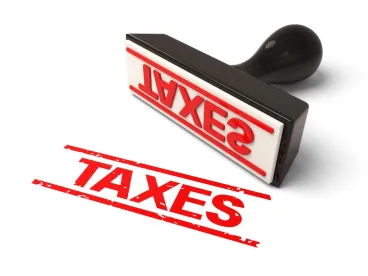Summary judgment is a common practice in all courts, including courts hearing tax disputes. Summary judgment is intended to expedite litigation and avoid unnecessary and expensive trials. Full or partial summary judgment is appropriate where there is no genuine issue of material fact and a decision may be rendered as a matter of law on the issue presented. Summary judgment can be obtained by a party upon the filing of a motion if the pleadings and other evidence in the record, including any affidavits or declarations in support of or against the motion, demonstrate that no factual dispute exists. Each court has its own particular rules on motions for summary judgment, but all are grounded on the essential requirement that the pertinent facts not be in dispute. The party moving for summary judgment bears the burden of showing that no genuine issues exists as to any material fact and that it is entitled to judgment as a matter of law, with all factual materials and inferences drawn from them considered in the light most favorable to the nonmoving party. To defeat a motion for summary judgment, the nonmoving party must do more than merely allege or deny facts; it must set forth specific facts showing a genuine dispute for trial. Thus, facts that are not properly supported or that are irrelevant or unnecessary will not be counted.
The decision of whether to file a motion for summary judgment must be carefully made. In some cases the decision may be fairly straightforward because both sides agree on the pertinent facts and the issue is purely legal. However, in other cases, the factual record may not be as clear and the parties may differ on which facts are material and which properly remain in dispute. Further, a motion for summary judgment by one party may result in a cross-motion for summary judgment by the other party. Thus, the party initially moving for summary judgment needs to be confident that it will not need additional facts or supporting information from witnesses before seeking summary adjudication.
As noted above, summary judgment can avoid the cost of a trial. Such avoided costs can include discovery, expert witness, trial preparation (including motions, pretrial memoranda and witness preparation), and the trial itself. It is therefore an attractive option to litigants seeking to dispose of a legal issue or the entire case without incurring substantial litigation expenses.
Although one or both parties may believe that the facts are undisputed, such a belief is not always validated by a court. This can lead to the denial of a motion for summary judgment on the basis for certain facts remain in dispute. Sometimes when a court determines that genuine issues remain in dispute, a party may discover that it possesses the “missing” information that might have supported the initial summary judgment filing. The question then becomes how best to proceed.
In Whistleblower 23711-15W v. Commissioner, Dkt. No. 23711-15W (Order issued August 1, 2017), the United States Tax Court (Tax Court) dealt with the situation where the Internal Revenue Service’s (IRS) initial motion for summary judgment was denied on the ground that material facts remained in dispute and the IRS then filed a second motion for summary judgment on the same issue. The Tax Court “look[ed] with disfavor on this piecemeal litigating strategy” and ordered the IRS to show cause why it should not refuse to consider its new motion. In so doing, the Tax Court shed light on this strategy.
Unlike local rules of some district courts, the Tax Court’s rules do not require leave of the Court before filing a second motion for summary judgment. However, as noted above, other federal courts do not approve in general the piecemeal consideration of successive motions for summary judgment. Thus, the Tax Court stated that a party moving for summary judgment may normally be held to the requirement that they present their strongest case for summary judgment when the matter is initially raised. It noted that the decision to consider a second motion is committed to a court’s sound discretion, and facts that could have been raised in the initial motion should not be held for a second motion.
Practice Point: Taxpayers seeking to move for summary adjudication should make sure that their motions and any supporting affidavits and declarations are as complete as possible. This will ensure that the court does not reject, without consideration, any subsequent motion that raises facts that could have been alleged in the initial motion. Following this practice can potentially limit costs associated with a trial that might have otherwise been avoided by a full and properly supported initial motion for summary judgment.



 />i
/>i
